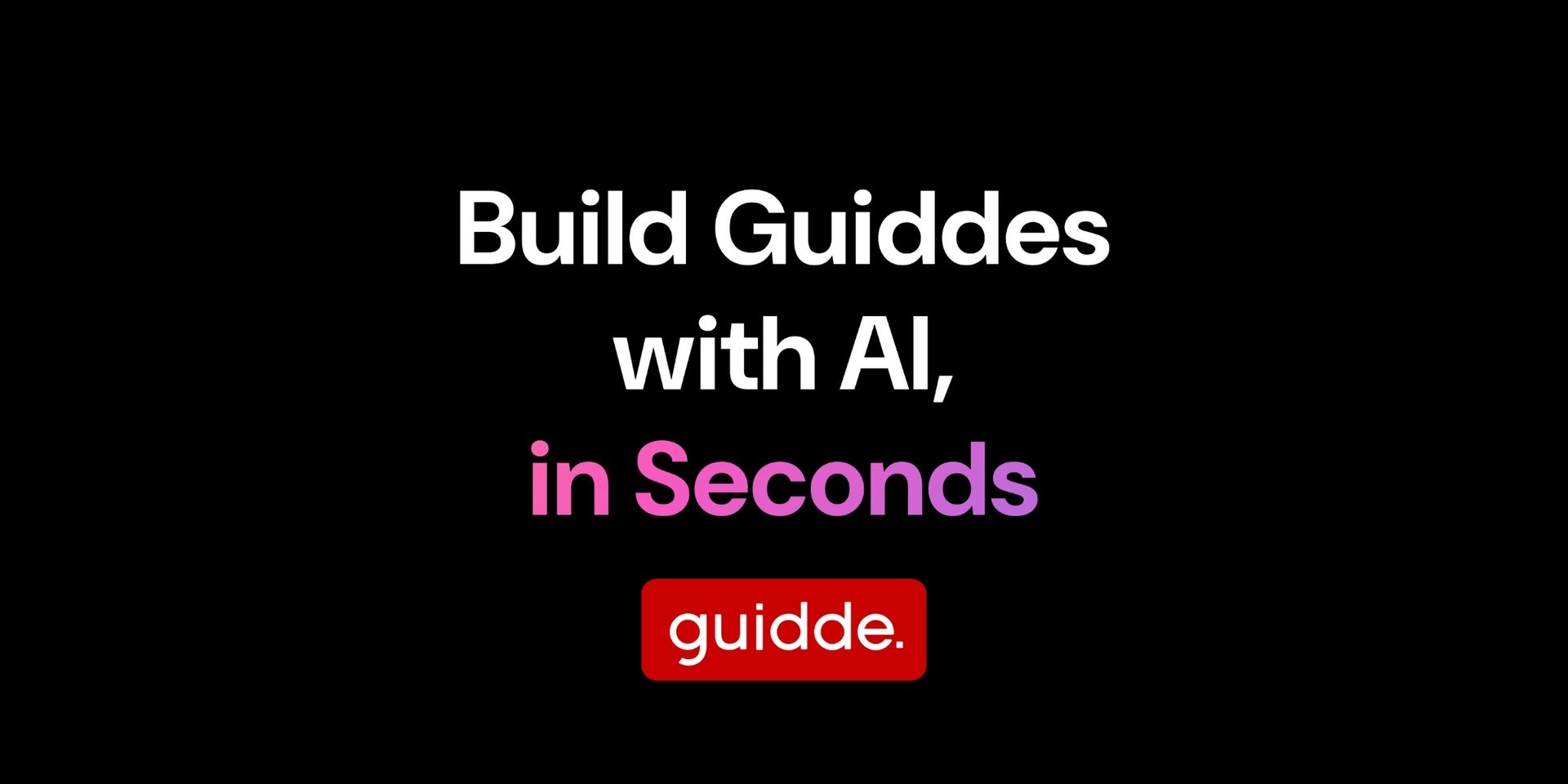
We’ve cooked up the latest in AI, just for you! Time to sit back and enjoy. 😄
Effortless Tutorial Video Creation with Guidde
Transform your team’s static training materials into dynamic, engaging video guides with Guidde.
Here’s what you’ll love about Guidde:
1️⃣ Easy to Create: Turn PDFs or manuals into stunning video tutorials with a single click.
2️⃣ Easy to Update: Update video content in seconds to keep your training materials relevant.
3️⃣ Easy to Localize: Generate multilingual guides to ensure accessibility for global teams.
Empower your teammates with interactive learning.
And the best part? The browser extension is 100% free.
🤯 MYSTERY AI LINK 🤯
(The mystery link can lead to ANYTHING AI-related: tools, memes, articles, videos, and more…)
Today’s Menu
Appetizer: Google makes research easier 🦾
Entrée: Tinder will use AI to find you matches 💞
Dessert: Google is using AI to protect wildlife 🦘
🔨 AI TOOLS OF THE DAY
👨💻 Multifactor: A password manager built for secure sharing with humans and AI. → Check it out
📑 Combine PDF: Merge PDF files seamlessly. → Check it out
GOOGLE MAKES RESEARCH EASIER 🦾
What’s new? Gemini’s Deep Research tool can now pull in data from your Gmail, Google Drive, and Google Chat to help you do smarter, more personalized research.
How will this work? This new feature lets Gemini analyze your own files—like Docs, Sheets, PDFs, emails, and chat messages—alongside public web data. That means if you’re doing a market analysis or writing a report, Gemini can automatically include relevant notes, emails, spreadsheets, and chats from your Google Workspace. Just open Gemini on your desktop, choose “Deep Research” under Tools, and select which sources you want it to use. Support for mobile is coming soon.
Why should you care? This saves time and gives you more complete, personalized answers. Instead of switching between apps or digging through files, Gemini can now do the heavy lifting—bringing your own data into the research process to make work faster, easier, and more tailored to what you actually need.
TINDER WILL USE AI TO FIND YOU MATCHES 💞
What’s up? Tinder is testing a new AI-powered feature called “Chemistry” that uses your camera roll and interactive questions to find better matches.
How will this work? The new “Chemistry” feature analyzes your photos—with your permission—to get a sense of your lifestyle, interests, and personality. It also asks interactive questions to learn more about who you are. Based on that data, it shows you fewer matches, but ones that are more likely to be a good fit. The goal is to reduce “swipe fatigue,” where users get tired of endlessly scrolling through potential matches. The feature is currently being tested in New Zealand and Australia, with plans to expand globally.
Why is this important? Dating apps often feel overwhelming or exhausting. If the tech actually works, it could make finding a meaningful connection easier and more efficient. But giving an app access to your private photos, even if optional, raises big privacy questions. Whether users will trust it remains to be seen.
Turn AI Into Your Income Stream
The AI economy is booming, and smart entrepreneurs are already profiting. Subscribe to Mindstream and get instant access to 200+ proven strategies to monetize AI tools like ChatGPT, Midjourney, and more. From content creation to automation services, discover actionable ways to build your AI-powered income. No coding required, just practical strategies that work.
GOOGLE IS USING AI TO PROTECT WILDLIFE 🦘
What’s going on? Google is using AI to help scientists map species, track deforestation, and listen to wildlife—all to protect the planet.
How does this work? One new model can predict which areas of forest are most at risk of being destroyed, using satellite images and AI to pinpoint threats like logging or fire down to a 30-meter scale. Another project uses AI to map the ranges of animals based on satellite data and species traits, helping researchers protect endangered creatures. Meanwhile, a tool called Perch listens to audio from nature and uses AI to identify bird calls and other sounds—helping scientists track species that are hard to see.
Why does this matter? Ecosystems are under pressure, and we need better ways to monitor and protect them. With AI, we can collect data faster, spot problems earlier, and help decision makers act before it’s too late.
HAS AI REACHED SINGULARITY? CHECK OUT THE FRY METER BELOW:
What do ya think of this latest newsletter?
Your feedback on these daily polls helps us keep the newsletter fresh—so keep it coming!





